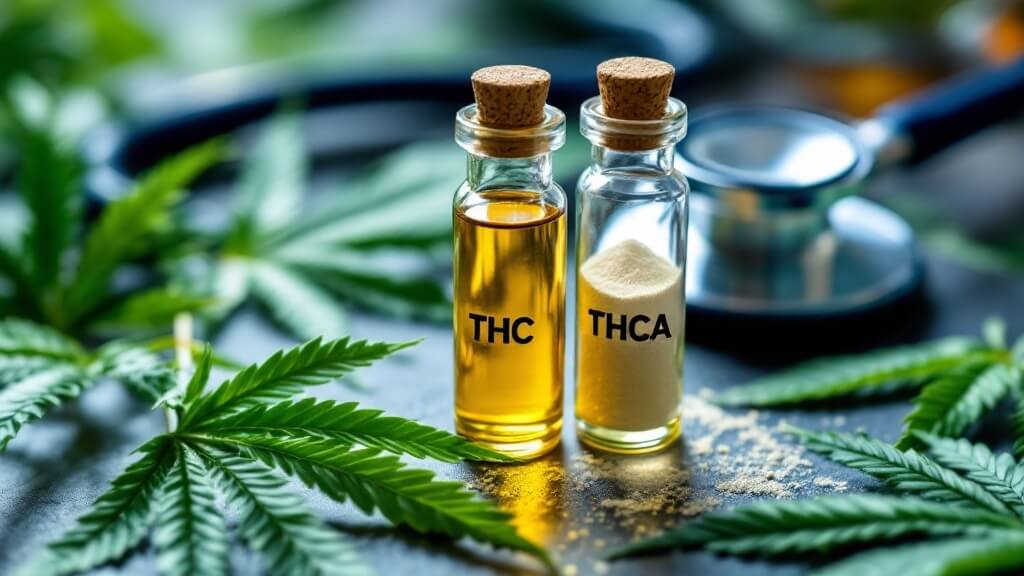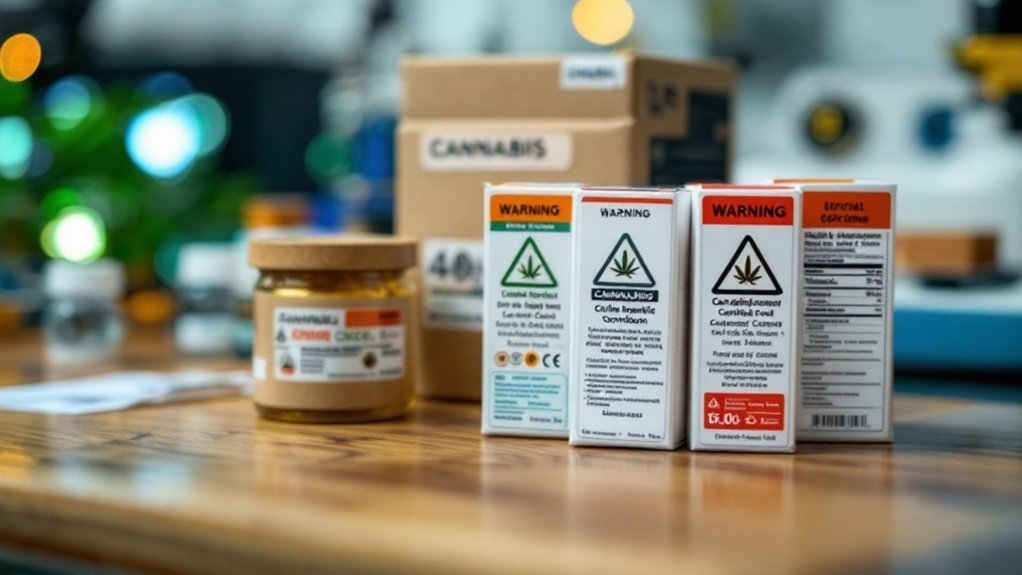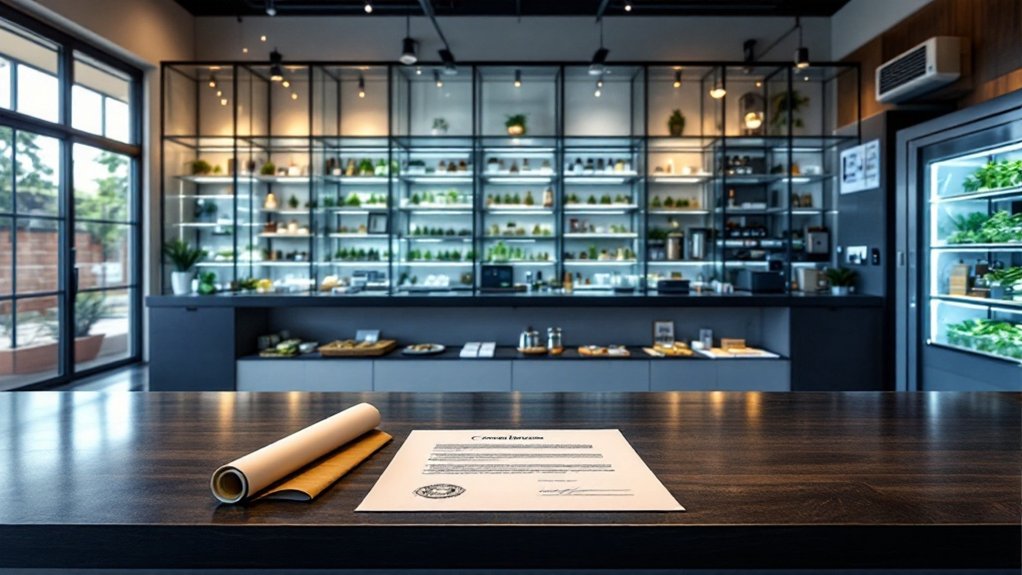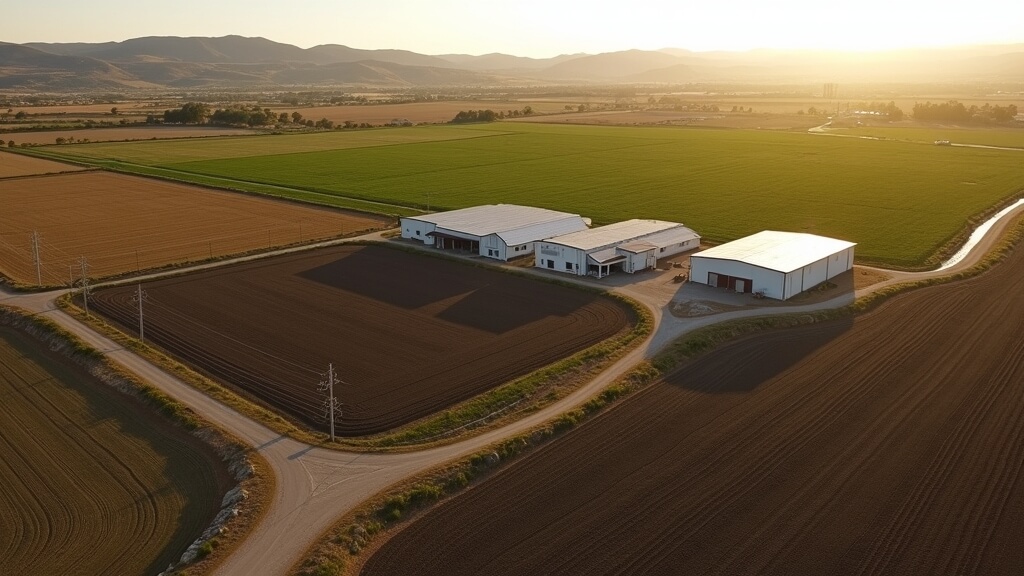THC and THCA represent two distinct cannabis compounds with significant differences. THCA, containing an additional carboxyl group, is the non-psychoactive precursor found in raw cannabis plants. Through decarboxylation—a heat-induced chemical process—THCA converts to THC, the psychoactive compound responsible for cannabis’s intoxicating effects. While THC binds to CB1 receptors in the brain, THCA offers potential therapeutic benefits without the high. Understanding these molecular distinctions helps explain why consuming raw versus heated cannabis produces dramatically different effects.
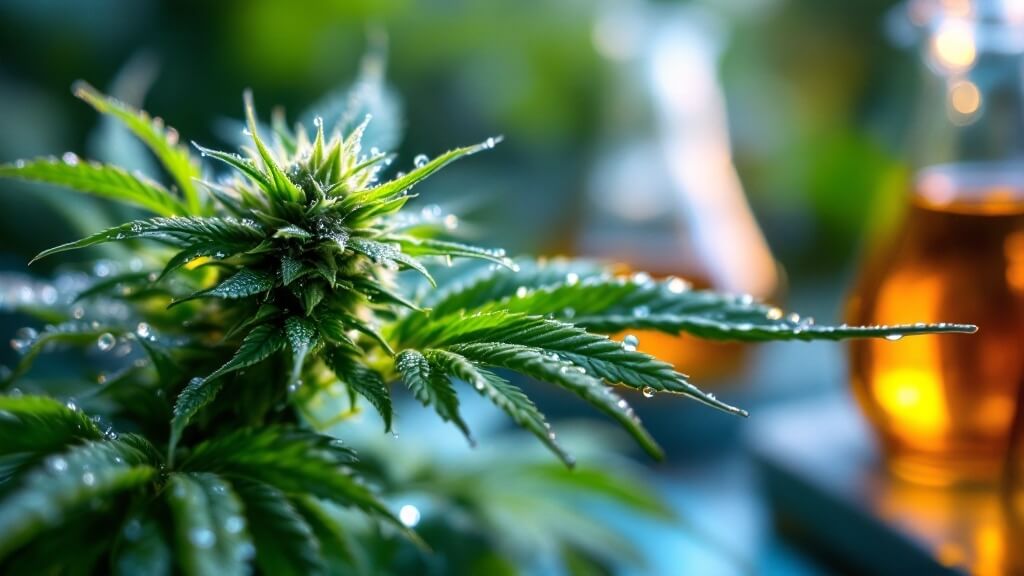
THC vs. THCA
The molecular distinction between THC and THCA represents a fundamental aspect of cannabis chemistry that determines how these compounds interact with the human body. THCA (Tetrahydrocannabinolic Acid) contains an additional carboxyl group (COOH) in its structure that THC lacks. This structural difference notably influences the size and shape of these cannabinoid molecules, directly affecting their biological activity and receptor interactions in the human endocannabinoid system.
Despite their similar names, these compounds produce markedly different effects when consumed. THCA, abundant in raw and unprocessed cannabis, does not produce psychoactive effects. Its larger molecular structure prevents it from properly binding to the CB1 receptors in the brain that trigger the characteristic cannabis “high.” THC, conversely, fits precisely into these receptors, producing the psychoactive effects commonly associated with cannabis consumption, including alterations in thinking, mood, and coordination. THC’s interaction with these receptors can lead to impaired motor skills and significantly increase the risk of accidents when driving. Additionally, research suggests that CBN’s sedative effects may complement THC’s benefits in certain therapeutic contexts.
While THCA cannot bind to brain receptors due to its size, THC fits perfectly—creating the cannabis high that affects mood and cognition.
The transformation of THCA to THC occurs through a process known as decarboxylation. This chemical reaction removes the carboxyl group from THCA when exposed to heat, light, or extended time periods. When cannabis is smoked, vaped, or baked, the heat triggers decarboxylation, converting the non-psychoactive THCA into THC. Consequently, consuming raw cannabis that contains primarily THCA will not produce psychoactive effects, while smoking or heating the same material will activate its psychoactive potential.
Legal frameworks often distinguish between these compounds due to their different properties. Regulations typically focus on THC content because of its psychoactive nature, though testing methodologies may measure total potential THC, accounting for THCA that could convert to THC. These distinctions remain important as legislation continues to evolve with advancing scientific understanding of cannabinoids.
Both compounds offer different potential therapeutic applications in medicine. THC is widely recognized for its ability to relieve pain, stimulate appetite, and reduce nausea. THCA, while not psychoactive, demonstrates promising anti-inflammatory properties in preliminary research. Some people choose to consume raw cannabis buds to gain the therapeutic benefits of THCA without experiencing any psychoactive effects. This differentiation proves essential for medical cannabis patients seeking specific benefits without necessarily experiencing psychoactive effects.
Understanding the relationship between THCA and THC illuminates why different cannabis consumption methods produce varied effects. This knowledge enables more informed decisions about cannabis products and highlights the complexity of the plant’s chemical profile. As research continues, scientists may uncover additional distinctions and applications for these closely related yet functionally different cannabinoids.
Frequently Asked Questions
How Do Smoking and Vaping Affect THCA Conversion to THC?
Both smoking and vaping convert non-psychoactive THCA to psychoactive THC through decarboxylation.
Smoking uses combustion (approximately 800-900°F), which rapidly decarboxylates THCA but can destroy some cannabinoids due to excessive heat.
Vaping employs controlled temperatures (typically 320-430°F), allowing for more efficient and precise THCA-to-THC conversion.
This temperature control preserves more cannabinoids and terpenes while minimizing the production of harmful combustion byproducts like benzene and carbon monoxide.
Can THCA Show up on Drug Tests?
THCA can potentially show up on drug tests through its conversion to THC.
Standard drug screenings typically detect THC metabolites rather than THCA itself, but when THCA undergoes decarboxylation—whether through heating or metabolic processes—it transforms into THC.
This conversion can lead to positive test results even if a person only consumed THCA products.
The detection window varies by test type, ranging from 72 hours in saliva tests to up to 90 days in hair follicle analysis.
Does THCA Have Any Psychoactive Effects at All?
THCA in its raw, unheated form has no psychoactive effects in humans.
Scientific evidence suggests that THCA cannot effectively cross the blood-brain barrier to engage central nervous system CB1 receptors, which are necessary for producing psychoactivity.
While THCA may activate peripheral CB1 receptors throughout the body, this interaction does not produce the intoxicating effects associated with THC.
Only when THCA undergoes decarboxylation through heat exposure does it convert to THC, becoming psychoactive.
How Long Does THCA Stay in Your System?
THCA typically remains detectable in the body for varying periods depending on the testing method used.
Blood tests can identify it within 30 minutes of consumption and for up to several days afterward, while urine tests generally have a 1-2 day detection window.
Hair samples provide the longest detection period, potentially revealing THCA presence for up to 90 days.
Individual factors affecting detection time include metabolism rate, body fat percentage, hydration levels, frequency of use, and consumption method.
Are There Medical Conditions That Respond Better to THCA Than THC?
Research suggests several conditions may respond better to THCA than THC.
Inflammatory disorders like arthritis and IBD benefit from THCA’s anti-inflammatory properties without psychoactivity.
Neurodegenerative conditions potentially respond to THCA’s neuroprotective effects, making it suitable for long-term management.
Those requiring nausea control and appetite stimulation—especially chemotherapy patients and individuals with chronic gastrointestinal issues—may prefer THCA when seeking to avoid cognitive impairment.
THCA also presents advantages for pediatric, elderly, and mentally vulnerable populations who need symptom relief without intoxication.
